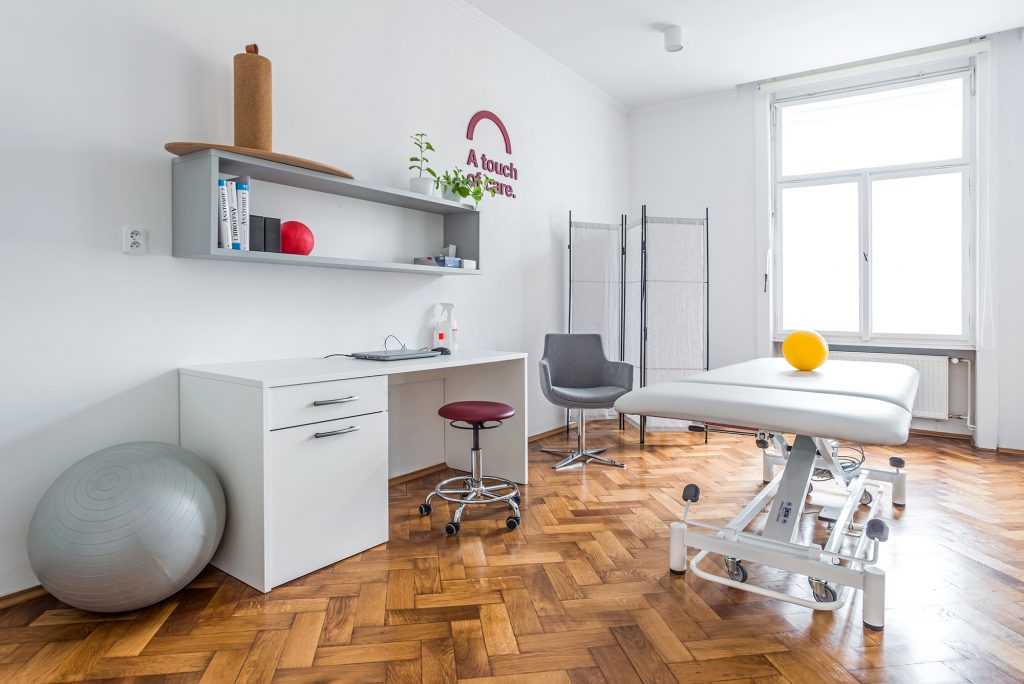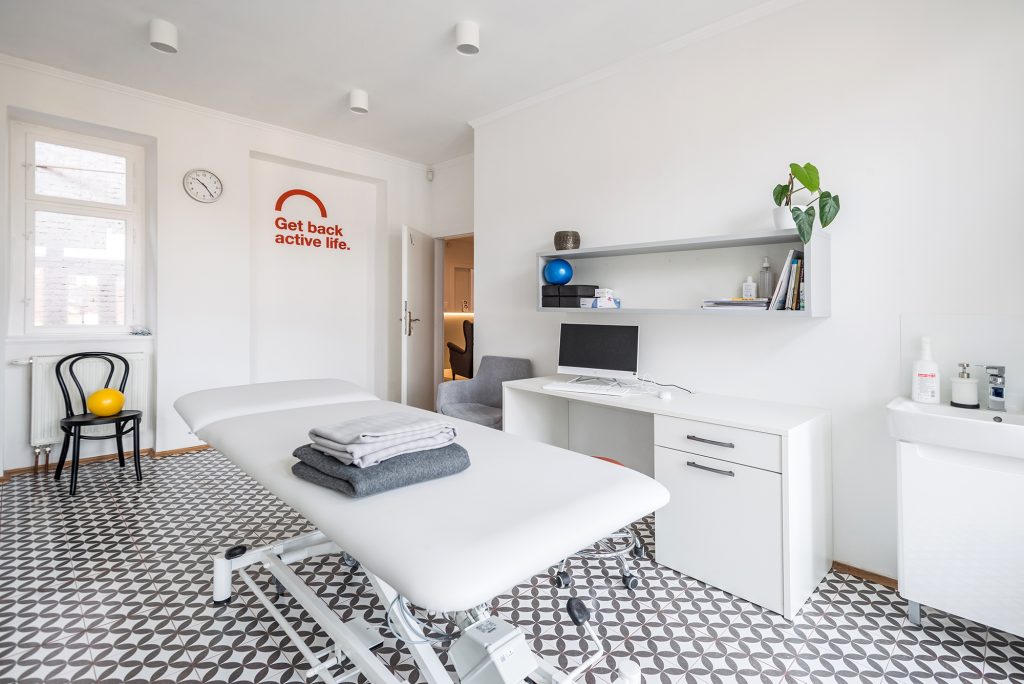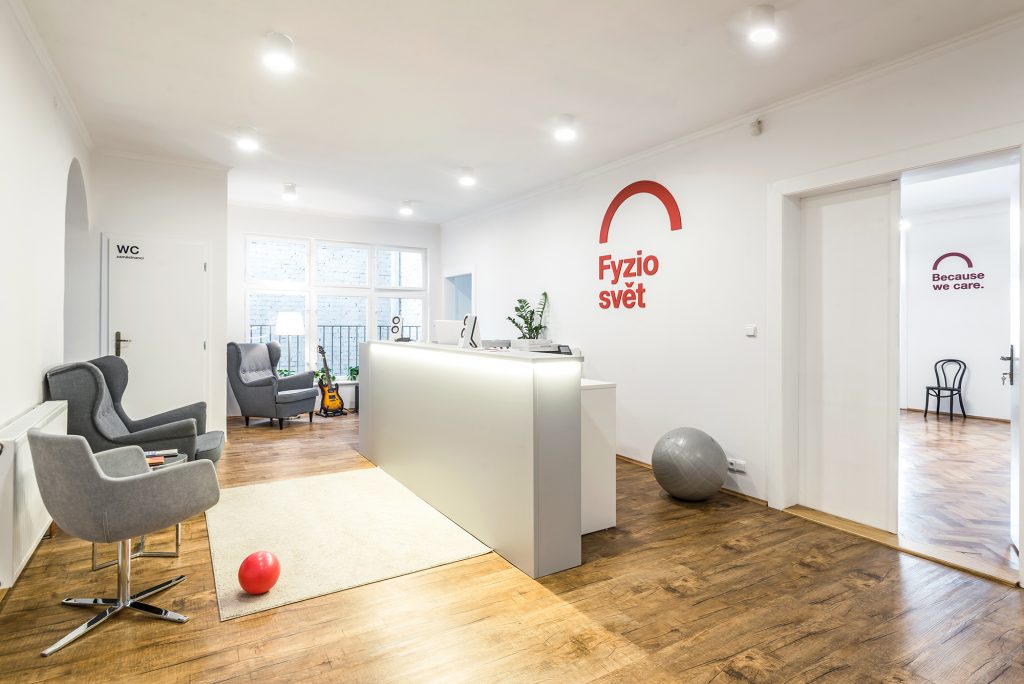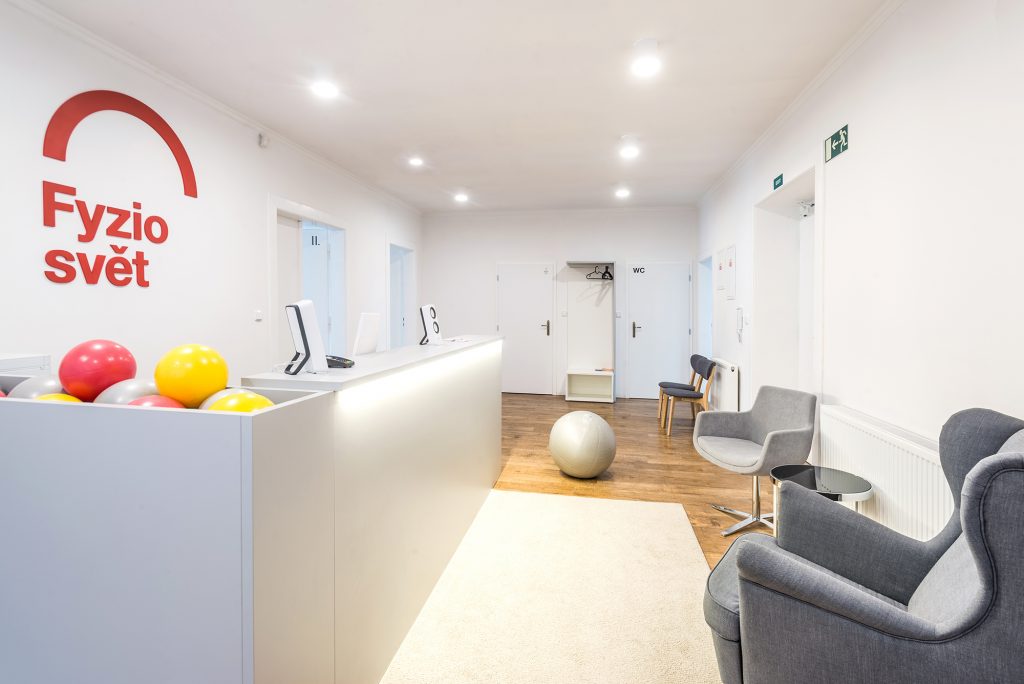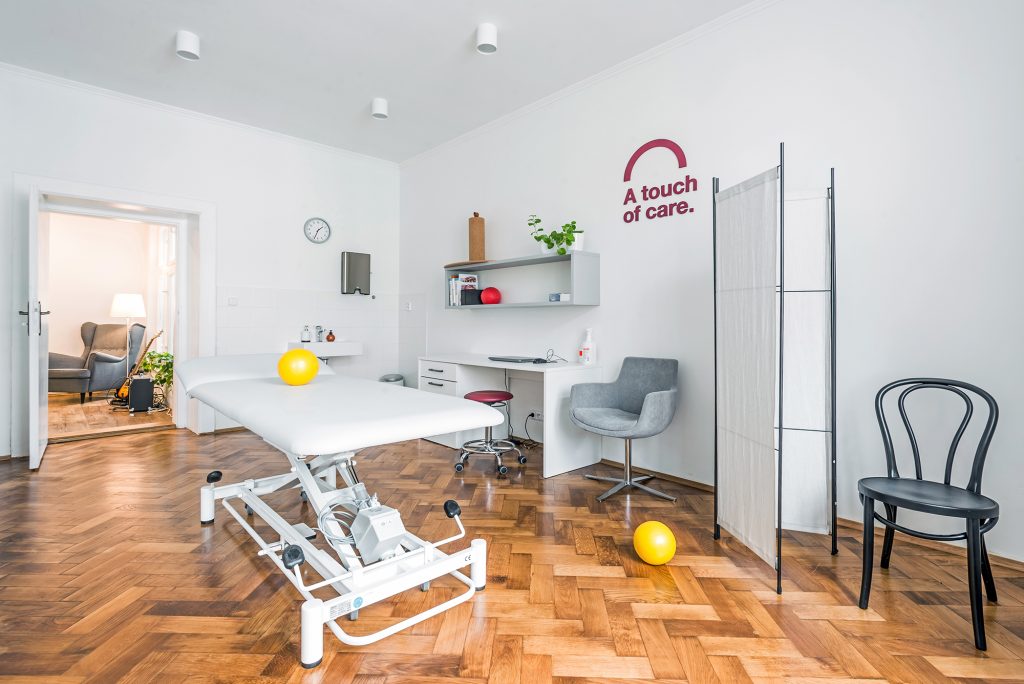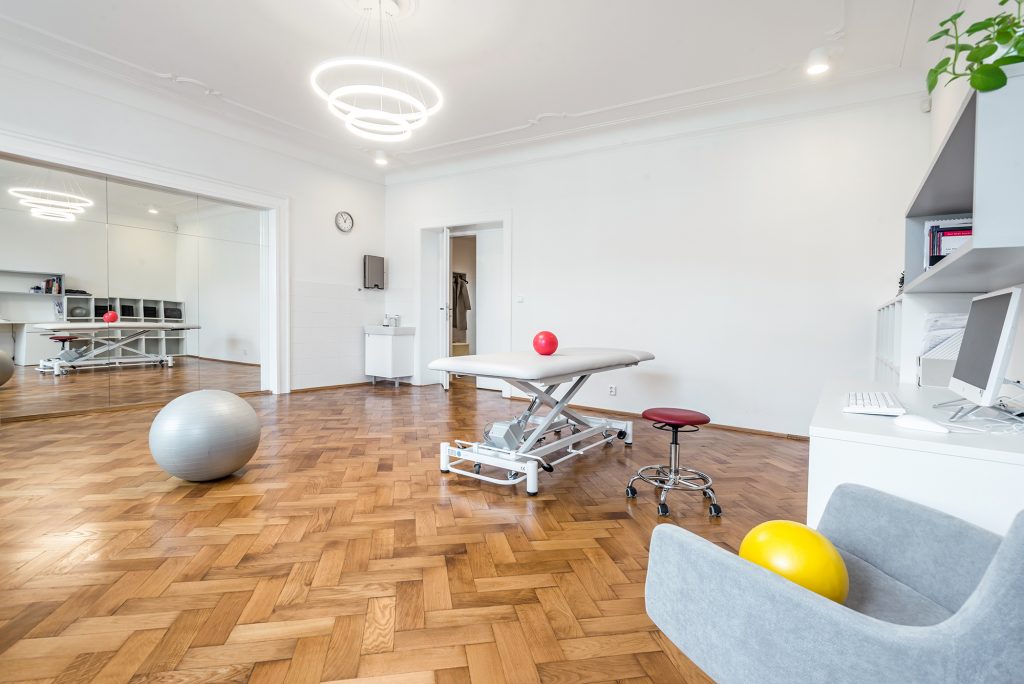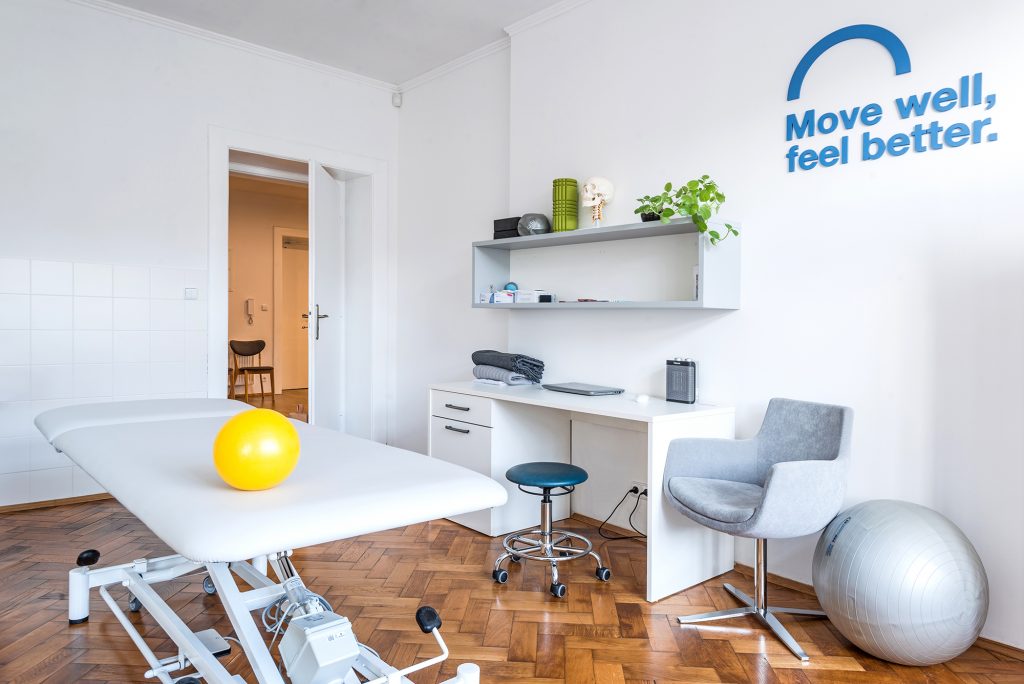IVF (In Vitro Fertilization) from a Physiotherapist’s Perspective
Physiotherapy and Its Benefits for IVF Treatment
At Fyzio svět, we frequently work with women who are trying to conceive and are simultaneously under the care of assisted reproduction centers. We are pleased that women seek us out on their journey to pregnancy and are informed about how physiotherapy can support their efforts. However, there are still many women unaware of this option. Combining physiotherapy with assisted reproduction treatment offers numerous benefits, including the alleviation or reduction of musculoskeletal pain, regulation of the menstrual cycle, and increased chances of conceiving after IVF. Here, we provide some basic information about the IVF process, along with details about movement therapy and exercise.
What Is IVF?
IVF stands for in vitro fertilization, a process in which eggs are retrieved from the ovaries, fertilized by sperm outside the body, and a few days later, the embryo is transferred into the uterus.
When Is IVF Used?
Couples are usually referred to assisted reproduction centers by a gynecologist after other treatment options have been exhausted. It’s generally recommended that after a year of trying to conceive, you should first consult with your gynecologist. IVF is used when all previous treatments have failed. This is highly individualized and depends on factors such as the couple’s age, Body Mass Index (BMI), hormonal screening results, sperm analysis, and any associated health conditions. You can also book an appointment directly at a fertility clinic without first consulting your gynecologist.
How Does IVF Work?
The IVF process can be broken down into 5 main steps:
- Ovarian Stimulation – This involves administering medication to stimulate the growth of follicles containing eggs. There are several types of stimulation protocols (short, long, natural, minimal). The reproductive center’s gynecologist decides on the appropriate protocol for each woman individually. For the short protocol, ovarian stimulation usually begins on day 1-3 of the menstrual cycle. Medications are typically injected into the abdomen. Ultrasounds are used to monitor the number of growing follicles. Medication dosages may be adjusted as needed. This stage lasts about 10 days. In the long protocol, medication begins during the cycle preceding the actual stimulation.
- Egg Retrieval – This procedure involves using a needle inserted through the vagina to aspirate follicular fluid, which contains the eggs. It is typically performed under general anesthesia, so pre-operative screening is required. After the egg retrieval, the woman is monitored in a recovery room and is usually discharged the same day.
- Fertilization – A few hours after egg retrieval, fertilization takes place. In standard IVF, sperm and eggs are cultured together overnight. More commonly, intracytoplasmic sperm injection (ICSI) is used, where a sperm is directly injected into the egg, simplifying the process.
- Embryo Cultivation – The fertilized egg begins developing, and its cells divide. The embryo goes through the stages of zygote, morula, or blastocyst. This process is closely monitored by an embryologist.
- Embryo Transfer – The embryo is transferred into the uterus 2-5 days after egg retrieval. In most cases, anesthesia is not required for the transfer. If the embryo transfer needs to be delayed for any reason, the embryos are frozen and transferred during a subsequent menstrual cycle, known as a cryoembryo transfer. A pregnancy test is typically recommended 14 days after the transfer.
How Long Does IVF Treatment Take?
From the start of hormone stimulation to the pregnancy test, the process takes approximately 4 to 6 weeks. However, if complications arise or genetic testing of embryos is needed, the embryo transfer may be postponed, extending the entire process.
Is IVF Treatment Painful?
IVF treatment is not usually very painful unless complications occur, such as ovarian hyperstimulation syndrome (OHSS). However, the hormone stimulation phase can be uncomfortable or even painful for some women due to the injectable medications (usually administered into the abdomen), as can the egg retrieval process. Fortunately, egg retrieval is typically performed under general anesthesia.
10 Tips to Increase Your Chances of Conceiving
1. Get Evaluated by a Physiotherapist
Studies show that physiotherapy can effectively prepare the body for IVF treatment, increasing the likelihood of success. Being under the care of a physiotherapist during this time can be highly beneficial. At Fyzio svět, we combine manual therapy techniques with other physiotherapeutic methods to create a personalized approach for each client. Through appropriate exercise and muscle tension optimization, blood flow to the pelvic area is improved, pain is reduced, and tension in the pelvic ligaments, smooth muscles, and skeletal muscles is relieved. We recommend starting physiotherapy several months before IVF treatment to allow sufficient time for preparation. However, everything is highly individualized, so a personal consultation is advisable.
2. Incorporate Regular Exercise into Your Life
Research shows that regular physical activity positively impacts reproductive organs, improves fertility, supports ovulation, and increases the success rate of IVF treatment. Aim for at least 30 minutes of moderate-intensity physical activity daily, such as brisk walking, jogging, cycling, swimming, gardening, or dancing. Strength training exercises 2-3 times per week are also recommended.
3. Minimize Time Spent Sitting
If you must sit for long periods, make an effort to break it up as frequently as possible by standing, walking, or stretching. Studies show that women who spend most of their workday sitting and remain sedentary during weekends may have more difficulty conceiving (both naturally and through IVF) compared to women who are more physically active.
4. Avoid Excessive Exercise
Over-exercising can harm fertility and reduce the success of IVF treatment, especially for women who exercise more than 60 minutes a day.
5. Don’t Completely Limit Physical Activity During IVF Treatment
It’s well-known that women tend to reduce their physical activity during IVF treatment and spend more time sitting. However, studies show that physical activity during IVF does not significantly affect embryo implantation, pregnancy, or childbirth outcomes. Nevertheless, since ovarian stimulation can pose risks (especially with the development of OHSS), we recommend resting more in the second half of the stimulation period and around the time of egg retrieval.
6. Prioritize Your Mental Health and Share Your Emotions
The IVF process can be emotionally demanding not only for the woman but also for her partner. It’s important to talk openly about your concerns. Don’t feel ashamed about seeking fertility treatment. Women who receive emotional support during IVF tend to handle the challenges of infertility better than those who mask their struggles and make excuses for frequent doctor visits.
7. Spend Your Free Time on Hobbies
Discover new hobbies, either alone or with your partner. Take up something you’ve never tried before. Ideally, choose activities that engage you regularly, such as a language course, cooking class, personal development techniques, or regular exercise classes. Yoga, for example, has been shown to reduce stress, which can positively influence IVF success rates.
8. Maintain a Healthy Weight
Scientific studies confirm that the health of reproductive organs is influenced by BMI. A BMI within the normal range (18.5-25) positively affects fertility, regularizes menstrual cycles, supports ovulation, and increases the success rate of IVF treatment. Women with a BMI ≥ 30 or < 18.5 have lower IVF success rates, and complications during IVF treatment are more likely in women with lower or higher BMI compared to those with a normal BMI.
9. Involve Your Partner in the Treatment Process
Infertility issues affect the couple as a whole. The tips mentioned above don’t just apply to you as a woman but also to your partner. This includes factors like weight, mental well-being, and physical activity. Studies indicate that recreational exercise is associated with improved sperm quality, whereas very high levels of exercise may negatively impact certain aspects of sperm quality.
10. Follow a Rest Routine Only During Specific Phases of IVF
- Ovarian stimulation – Every woman responds differently to ovarian stimulation, so it’s best to be cautious. We recommend limiting strenuous physical activity and sexual activity during this period. However, it’s not necessary—or advisable—to be entirely inactive.
- Egg retrieval – On the day of the retrieval and for 2-3 days after, we recommend resting. This allows the body to recover from anesthesia and minimizes the risk of abdominal pain after the follicle puncture.
- Embryo transfer – On the day of the transfer and for the following 3 days, we recommend resting again. After that, if you feel well, it’s not necessary—or beneficial—to remain inactive. You can perform daily activities like household chores, walking, stretching, or breathing exercises. However, pay close attention to your health, and if you feel unwell, rest. After the transfer, avoid hot baths, saunas, or engaging in any risky activities that involve falls, bumps, or jolts. We also recommend limiting sexual activity until after your check-up at the assisted reproduction center.
At Fyzio svět, we specialize in helping women who are trying to conceive and are undergoing treatment at assisted reproduction centers. Targeted physiotherapy can improve the chances of conception, a smooth pregnancy, and delivery.
Used literature:
1) MENA, Gabriela P, Gregore I MIELKE a Wendy J BROWN. The effect of physical activity on reproductive health outcomes in young women: a systematic review and meta-analysis. Human Reproduction Update [online]. 2019, 25(5), 542-564 [cit. 2022-03-15]. ISSN 1355-4786. Dostupné z: doi:10.1093/humupd/dmz013
2) HARRISON, Cheryce, Wendy BROWN, Melanie HAYMAN, Lisa MORAN a Leanne REDMAN. The Role of Physical Activity in Preconception, Pregnancy and Postpartum Health. Seminars in Reproductive Medicine [online]. 2016, 34(02), e28-e37 [cit. 2022-03-15]. ISSN 1526-8004. Dostupné z: doi:10.1055/s-0036-1583530
3) SÕRITSA, Deniss, Evelin MÄESTU, Margit NUUT, et al. Maternal physical activity and sedentary behaviour before and during in vitro fertilization treatment: a longitudinal study exploring the associations with controlled ovarian stimulation and pregnancy outcomes. Journal of Assisted Reproduction and Genetics [online]. 2020, 37(8), 1869-1881 [cit. 2022-03-15]. ISSN 1058-0468. Dostupné z: doi:10.1007/s10815-020-01864-w
4) ĎURAŠKOVÁ, Gabriela, Radek HAMPL, ŠTĚPÁN, J, Martin KUPKA. Vliv psychické odolnosti ženy na úspěšnost prvního IVF/ICSI. Česká gynekologie. 2014, 79(2), 115-119.
5) ORON, Galia, Erica ALLNUTT, Tasha LACKMAN, Tamar SOKAL-ARNON, Hananel HOLZER a Janet TAKEFMAN. A prospective study using Hatha Yoga for stress reduction among women waiting for IVF treatment. Reproductive BioMedicine Online [online]. 2015, 30(5), 542-548 [cit. 2022-03-15]. ISSN 14726483. Dostupné z: doi:10.1016/j.rbmo.2015.01.011
6) KIRCA, Nurcan a Turkan PASINLIOGLU. The effect of yoga on stress level in infertile women. Perspectives in Psychiatric Care [online]. 2018, 55(2), 319-327 [cit. 2022-03-15]. ISSN 0031-5990. Dostupné z: doi:10.1111/ppc.12352
7) SVITEKOVÁ, Miroslava, Kateřina ČADOVÁ, Igor CRHA, Pavel VENTRUBA a Jana ŽÁKOVÁ. Vliv výživy na výsledky léčby neplodnosti metodami IVF/ET. Praktická gynekologie. Brno: Medica Healthworld, Brno, 2010, roč. 14, č. 2, s. 85-88. ISSN 1211-6645.
8) WANG, J X, M DAVIES a R J NORMAN. Body mass and probability of pregnancy during assisted reproduction treatment: retrospective study. BMJ [online]. 2000, 321(7272), 1320-1321 [cit. 2022-03-15]. ISSN 0959-8138. Dostupné z: doi:10.1136/bmj.321.7272.1320
9) FEDORCSÁK, Péter, Per Olav DALE, Ritsa STORENG, et al. Impact of overweight and underweight on assisted reproduction treatment. Human Reproduction [online]. 2004, 19(11), 2523-2528 [cit. 2022-03-15]. ISSN 1460-2350. Dostupné z: doi:10.1093/humrep/deh485
